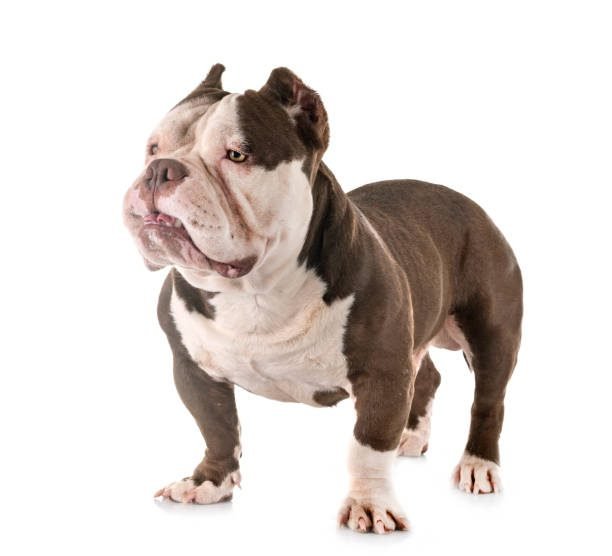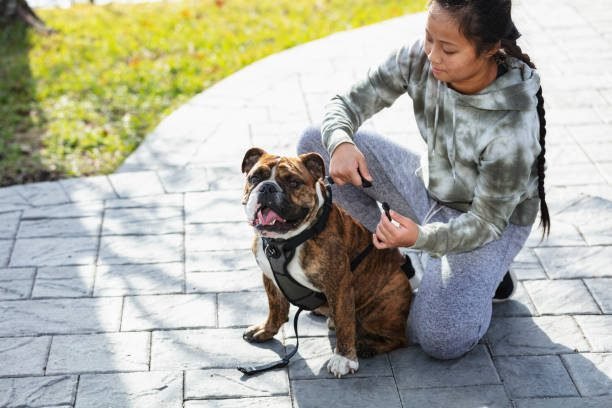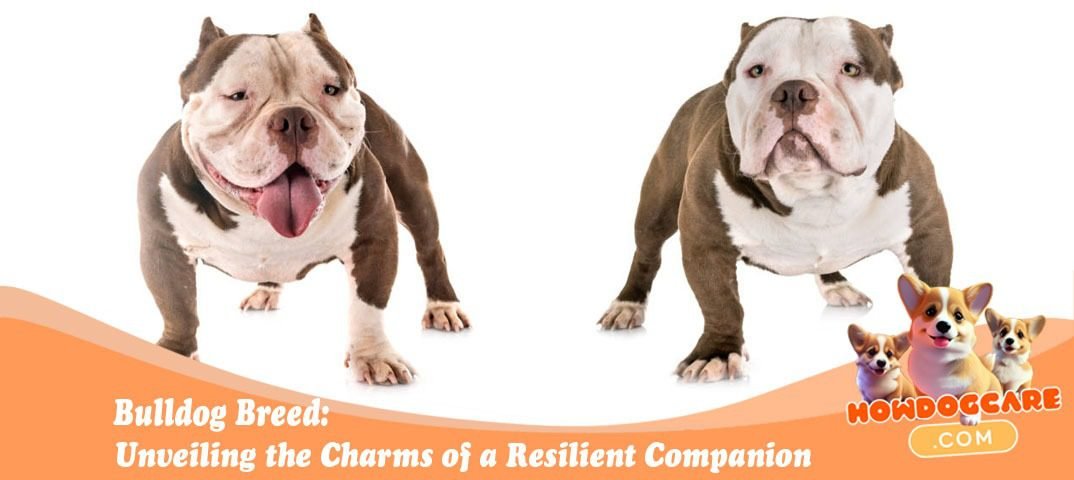In the vast tapestry of dog breeds, the Bulldog stands out as a symbol of resilience, strength, and unwavering loyalty. This iconic breed has carved a niche for itself, capturing the hearts of dog lovers with its distinctive appearance and endearing personality. Join us as we explore the fascinating world of Bulldogs, delving into their history, physical characteristics, behavior, and the joys of welcoming one of these resilient companions into your life.
Bulldog Breed History
Roots in Bull-Baiting:
The Bulldog’s roots trace back to 13th-century England, where they were originally bred for bull-baiting—a brutal sport involving dogs confronting bulls. Over time, the breed evolved, and its tenacious spirit was preserved, even as bull-baiting faded into history.
Transformation to Companion Dogs:
In the mid-19th century, Bulldogs transitioned from working in the bullring to becoming cherished companions. Breeders selectively bred for temperament, resulting in the creation of a breed known for its gentle disposition and enduring loyalty.
Symbol of Tenacity:
The Bulldog’s history is a testament to its tenacity and adaptability. From the bullring to becoming a symbol of courage and determination, Bulldogs have earned a special place in the hearts of dog enthusiasts.
Overview of This Bulldog Dog Breed
- Group
- Non-Sporting Group
- Origin
- England
- Size
- Medium, muscular, and stocky
- Height & Weight
- 12–16 in (30–40 cm); 40–50 lb (18–23 kg)
- Temperament
- Calm, courageous, friendly, and affectionate
- Lifespan
- 8–10 years
- Exercise Needs
- Low to Moderate — short daily walks and light play
- Trainability
- Moderate — responds best to patience and consistency
- Health Issues
- Respiratory problems, hip dysplasia, skin issues
- Best For
- Families, apartment living, or owners seeking a gentle companion
- Summary
- Bulldogs are calm, loyal, and affectionate dogs, recognized for their distinctive wrinkled face and friendly disposition, making them excellent companions.
Physical Characteristics

Compact and Muscular Build:
Bulldogs exhibit a distinctive compact and muscular build. They are medium-sized dogs with a broad chest, sturdy limbs, and a characteristic pushed-in nose, giving them a unique appearance that exudes strength.
Signature Wrinkled Face:
One of the Bulldog’s most recognizable features is its wrinkled face, adorned with a pushed-in nose and expressive eyes. These facial features contribute to their endearing and distinctive look.
Variety of Coat Colors:
Bulldogs come in a variety of coat colors, including brindle, fawn, white, and combinations of these. The diversity in colors adds to the individuality and charm of each Bulldog.
Behavior and Temperament

Gentle and Friendly Nature:
Despite their historical roots, Bulldogs are known for their gentle and friendly nature. They are affectionate, forming strong bonds with their owners and making them excellent family pets.
Moderate Activity Levels:
Bulldogs have moderate exercise needs, enjoying short walks and play sessions. Their laid-back demeanor makes them well-suited for apartment living, as they adapt easily to their owners’ lifestyles.
Affectionate Companions:
Bulldogs thrive on human companionship and are often referred to as “lap dogs” due to their love for cuddling. Their affectionate nature makes them ideal for families, singles.
Nutrition and Health Considerations
Specialized Diet:
Due to their unique physique, Bulldogs benefit from a balanced diet that supports their overall health. A high-quality dog food tailored to their specific needs helps maintain their weight and vitality.
Watchful Eye on Weight:
Bulldogs can be prone to obesity, so monitoring their weight through proper portion control and regular exercise is essential. Regular veterinary check-ups contribute to their overall well-being.
Related Articles
Training and Care

Positive Reinforcement:
Bulldogs respond well to positive reinforcement training methods. Their eagerness to please makes training sessions enjoyable for both the owner and the dog.
Dental Care:
Given their distinctive jaw structure, Bulldogs may be prone to dental issues. Regular teeth cleaning and providing appropriate dental chews contribute to their oral health.
Skin Care:
Bulldogs may have skin folds that require extra attention. Regular cleaning and drying of these folds help prevent irritation and potential skin problems.
Frequently Asked Questions (FAQs)
- Are Bulldogs good with children and other pets?
- Yes, Bulldogs are known for their gentle and friendly nature, making them great companions for children and other pets. Early socialization is key to fostering positive interactions.
- How much exercise do Bulldogs need daily?
- Bulldogs have moderate exercise needs, requiring around 20 to 30 minutes of daily activity. Short walks and play sessions are usually sufficient to keep them happy and healthy.
- Do Bulldogs have a lot of health issues?
- Bulldogs may be prone to certain health issues, including respiratory concerns and dental problems due to their unique facial structure. Regular veterinary check-ups and a healthy lifestyle contribute to their well-being.
- Are Bulldogs easy to train?
- Bulldogs are known for their eagerness to please, but they can have a stubborn streak. Consistent and positive reinforcement training methods work best with Bulldogs.
- What is the average lifespan of a Bulldog?
- Bulldogs have an average lifespan of around 8 to 12 years. Providing proper nutrition, regular exercise, and routine veterinary care contribute to their overall health and longevity.
Conclusion: A Bulldog’s Heart of Gold
In conclusion, the Bulldog’s enduring charm lies not only in its distinctive appearance but also in its gentle and resilient nature. Whether you’re drawn to their muscular build, expressive face, or affectionate personality, Bulldogs bring a heart of gold to every home they become a part of. If you’re considering adding a loyal and resilient companion to your life, the Bulldog might just be the perfect four-legged addition, ready to fill your days with love and companionship.






